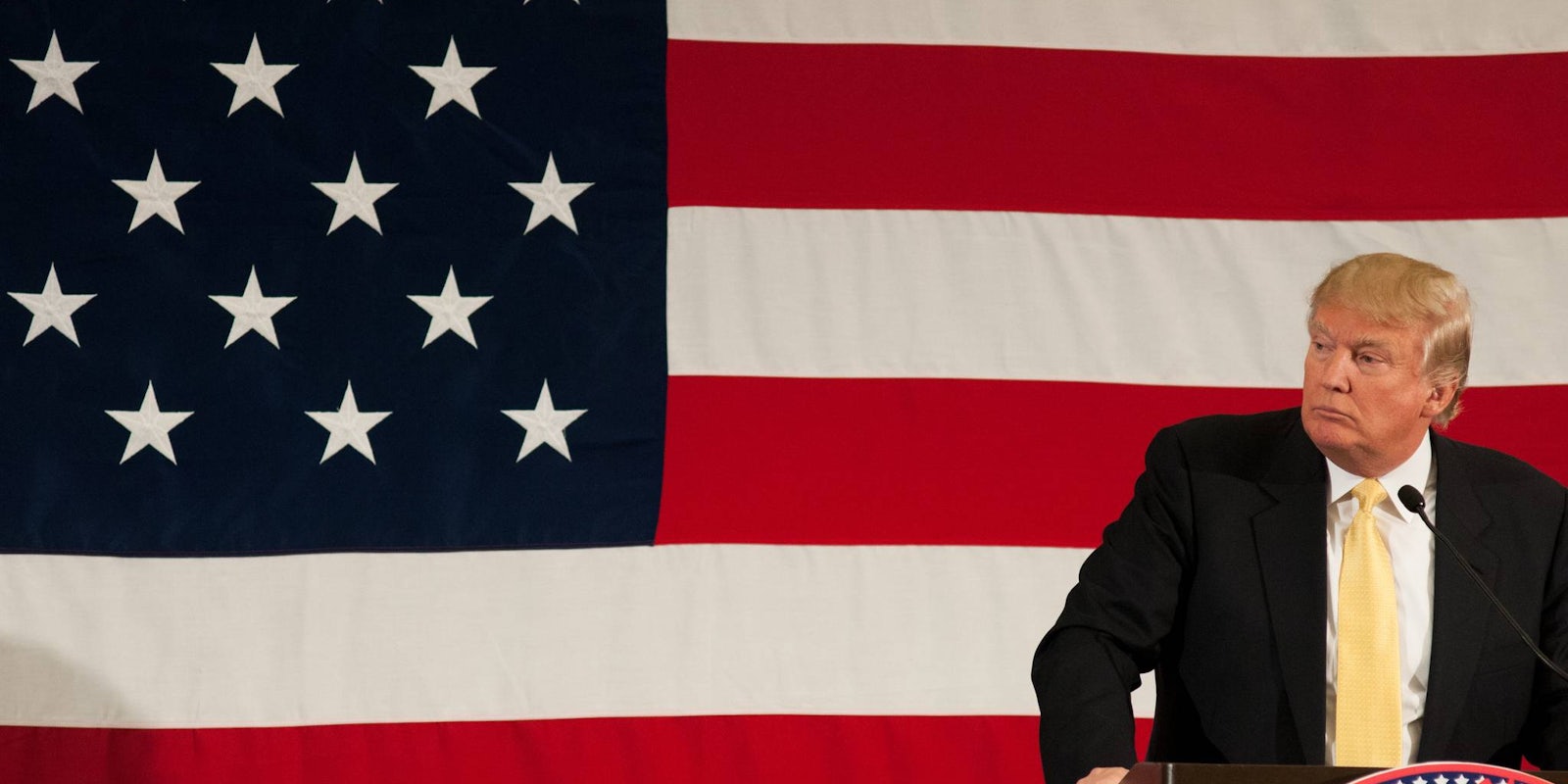A pair of U.S. government agencies have released conflicting data on the number of visas revoked as a result of President Donald Trump‘s controversial travel ban.
According to a Justice Department attorney, the U.S. revoked approximately 100,000 visas as a result of Trump’s recent executive order banning travel to the U.S. from seven Muslim-majority nations. The State Department later said the number was fewer than 60,000.
WASHINGTON (AP) — State Department says fewer than 60,000 visas canceled under Trump's order, contradicting U.S. attorney's figure.
— Matt Lee (@APDiploWriter) February 3, 2017
The 100,000 number was disclosed on Friday at a hearing in the U.S. District Court for the Eastern District of Virginia over a lawsuit filed by attorneys for two Yemeni brothers and U.S. permanent residents, Tareq Aziz, 21, and Ammar Aziz, 19, who were deported Saturday as a result of Trump’s executive order. The brothers arrived at Dulles International Airport on Saturday and were instead put on a return flight to Ethiopia. Their attorneys allege that U.S. immigration officials forced the brothers to give up their green cards.
Department of Justice attorney Erez Reuveni said over 100,000 visas that the United States had issued were revoked as a result of Trump’s travel ban.
The State Department told the Associated Press that the Justice Department’s numbers included diplomatic visas, which were not affected by Trump’s executive order.
Lawsuits for dozens of immigrants who have had their green cards revoked by immigration officials have cropped up in the days since Trump signed an executive order instituting the ban, which affects travelers from Iran, Iraq, Syria, Sudan, Somalia, Libya, and Yemen.
White House Press Secretary Sean Spicer said he did not know the details about the 100,000 revoked visas during a press conference on Friday afternoon. “I’ll have to get back to you on that,” Spicer said. “I don’t have all the details right now.”
American Arab Anti-Discrimination Commitee Legal Director Abed Ayoub said he was “still working” on figuring out the impacts of the revoked visas.
Breaking: Reports of 100,000 visas being cancelled by the #MuslimBan. Still working on the impact this has.
— Abed A. Ayoub (@aayoub) February 3, 2017
Acting Attorney General Dana J. Boente was the U.S. attorney for the Eastern District Court of Virginia, the court that is currently hearing the Aziz v. Trump case. Boente was appointed by Trump after he fired former acting Attorney General Sally Yates due to her ordering the DOJ to not defend Trump’s executive order in court.
U.S. District Judge Leonie Brinkema, who presided over the Aziz v. Trump case on Friday, rejected the U.S. government’s offer to provide new visas if the brothers dropped their case on the grounds that the Trump administration failed to put enough “thought” into how the executive order would affect visa holders.
“I have never had so much public outpouring as I’ve seen in this case,” Brinkema said. “This order touched something in the United States that I’ve never seen before. It’s amazing.”
Revocation of visas is not unheard of. The George W. Bush administration revoked some visas due to changes in U.S. immigration law by the USA Patriot Act. The Patriot Act allows visas to be revoked for a range of reasons, including a perception that someone’s political activities endorse terrorism.
Despite pleas from the University of Notre Dame and civil rights groups, a visa for Swiss academic and Muslim scholar Tariq Ramadan was revoked in 2004 by the Department of Homeland Security. “I’m abandoning the idea of moving to the United States,” Tariq Ramadan told Associated Press after his visa was revoked. “I want to maintain my dignity.”
It was later revealed that Ramadan had donated to a Hamas-linked charity, but this was before the U.S. government had officially linked the group with terrorism.
Ramadan is currently a professor of contemporary Islamic studies at Oxford. He has also taught in universities in Malaysia, Japan, and Qatar, but never the United States.
